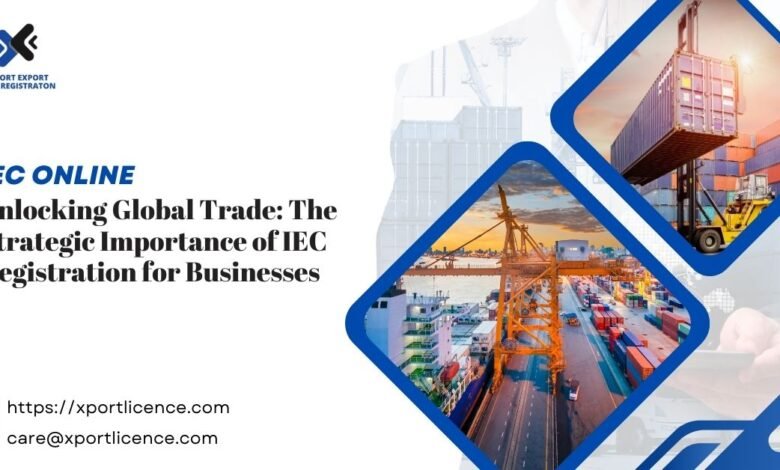Unlocking Global Trade: The Strategic Importance of IEC Registration for Businesses

The Import Export Code (IEC) registration is a key requirement for businesses seeking to engage in international trade. Without it, companies cannot import or export goods and services. While many are familiar with the procedural aspects of IEC registration, the strategic advantages it offers for long-term growth are often overlooked. In this article, we will explore the unique benefits of IEC registration, focusing on how it can transform a domestic business into a global competitor.
What is IEC Registration?
IEC registration is issued by the Directorate General of Foreign Trade (DGFT), which is under the Ministry of Commerce and Industry, Government of India. It is a 10-digit code that acts as a unique identifier for businesses engaged in the import and export of goods and services. Obtaining an IEC is mandatory for any company or individual wishing to trade internationally, and the process is fairly straightforward, typically completed online.
Why is IEC Registration Important?
IEC registration serves as a gateway to international markets. It is not just a regulatory formality but a strategic tool that allows businesses to leverage global trade opportunities. Here are some of the key strategic advantages of obtaining an IEC:
Access to International Markets
For any business, growth often means expanding beyond local borders. IEC registration is the first step in accessing international markets, allowing businesses to import raw materials or export finished products. With global markets at your fingertips, your business can enjoy increased sales and profitability by catering to customers across the world. Import-export operations open new revenue streams and reduce reliance on domestic demand, making the business more resilient.
Government Incentives and Export Benefits
The Indian government offers several incentives and benefits to exporters under various schemes, but only businesses with IEC registration can avail themselves of these. Programs such as the Merchandise Exports from India Scheme (MEIS) and the Service Exports from India Scheme (SEIS) offer financial rewards, subsidies, and tax exemptions to promote exports. These incentives can significantly reduce the cost of international trade and improve margins, making global expansion more attractive.
Enhanced Brand Credibility
Having an IEC registration improves the credibility of a business. It acts as a trust signal to international clients and partners, indicating that the business is legally compliant and reliable. This credibility is essential when forming partnerships or securing long-term contracts with overseas clients. A registered business is more likely to gain the trust of foreign buyers, suppliers, and government agencies, which can lead to better business opportunities.
Tax Exemptions and F inancial Benefits
IEC registration comes with several tax-related benefits. For instance, businesses can claim a refund on Goods and Services Tax (GST) paid on exported goods. Additionally, certain states and central government schemes provide tax rebates or exemptions for exporters, helping businesses save costs. These tax benefits not only increase profit margins but also make the business more competitive in global markets where pricing plays a crucial role.
Note: Click here if you wish to update your IEC – Update IEC Code Online
Conclusion
IEC registration is more than just a regulatory requirement; it is a strategic tool for businesses aiming to grow and succeed in the global marketplace. From enhancing credibility and reducing risk to unlocking government incentives and tax benefits, the advantages are numerous. For any business serious about international trade, obtaining an IEC is the first and most crucial step towards sustainable growth and global competitiveness.




